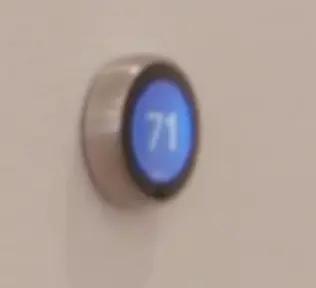Ask Lemmy
A Fediverse community for open-ended, thought provoking questions
Please don't post about US Politics.
Rules: (interactive)
1) Be nice and; have fun
Doxxing, trolling, sealioning, racism, and toxicity are not welcomed in AskLemmy. Remember what your mother said: if you can't say something nice, don't say anything at all. In addition, the site-wide Lemmy.world terms of service also apply here. Please familiarize yourself with them
2) All posts must end with a '?'
This is sort of like Jeopardy. Please phrase all post titles in the form of a proper question ending with ?
3) No spam
Please do not flood the community with nonsense. Actual suspected spammers will be banned on site. No astroturfing.
4) NSFW is okay, within reason
Just remember to tag posts with either a content warning or a [NSFW] tag. Overtly sexual posts are not allowed, please direct them to either [email protected] or [email protected].
NSFW comments should be restricted to posts tagged [NSFW].
5) This is not a support community.
It is not a place for 'how do I?', type questions.
If you have any questions regarding the site itself or would like to report a community, please direct them to Lemmy.world Support or email [email protected]. For other questions check our partnered communities list, or use the search function.
Reminder: The terms of service apply here too.
Partnered Communities:
Logo design credit goes to: tubbadu
view the rest of the comments


That seems to be it. Thanks. Too bad that doesn't seem usable without extensive wiring and is thus only an option for newly constructed houses.
Not necessarily true! If your home already has a thermostat, then nest has a website where you answer some questions and they let you know if it can be replaced with a thermostat. Only 4 wires are needed typically.
Well, it doesn't have one, I'm currently using Honeywell devices which communicate wirelessly.
Even if you’re using wireless devices, you almost certainly have a master device that DOES connect via a wire. Wireless thermostats are a recent invention, so if you have a non-newly-constructed home, it’s almost certain that at least one of your thermostats has a hardwire connection.
Pull each off the wall and look behind it. The wires are small, not like household power lines. They only carry 24v, so they look closer to phone wires than anything else, though not exactly.
When you find the wired thermostat, you can replace that one with a nest or ecobee. They come with directions on how to wire them up. The downside is that the other thermostats without a wire will become decorative and not function anymore without the master.
I don't have a master device as all. The house is from the 70's, and all our radiators were only manually adjustable valves (turn from 0 to 5). The wireless system just replaced having to hand-turn every radiator on and off daily. No master device was present at all.
Oh. Yeah. If it's a manual valve turn system, not a central hvac, then a Nest or ecobee won't work for you.
Wait.
A WIRED thermostat is only an option for newly constructed houses? Dude you're using a wireless one. You think wireless thermostats were invented in 1895 or something?
What?
If it's already set up like that, you'd just have to connect a new one to wifi...
I use one in a house that is 90 years old. The HVAC that it is attached to is from the 90s.
That "extensive wiring" is similar to a phone wire, and has been standard for a very, very long time